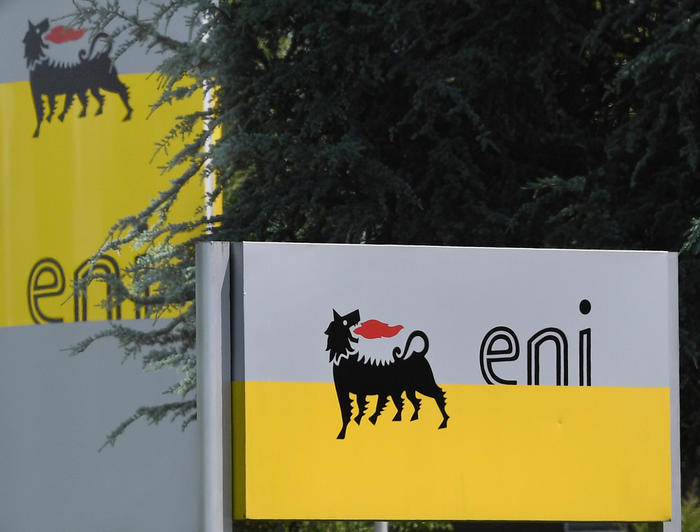Enlarge image
Can bring good news this time:
Daimler boss Ola Källenius has a key message at the annual general meeting - it's going well
Photo: Silas Stein / dpa
The corona shock year: finished with billions in profit.
The profit: increased more than expected.
The savings program: on track.
And the dividend: will be increased significantly.
When Daimler boss
Ola Källenius (
51) appears virtually in front of his shareholders on Wednesday from 10 a.m., he has a lot to report at this year's general meeting of the car manufacturer, which should please his shareholders.
The coming years will be "a sack of work," said the native Swede at the end of February 2020. The world stood a few weeks before a global pandemic was announced, which soon hit Daimler with full force: factories around the world were idle for weeks, car dealerships were closed , with all performance indicators it went downhill accordingly.
Stress test passed
The Swabians survived the "stress test" of 2020 better than many expected.
The auto market in China recovered faster than expected.
Källenius' cost-cutting program, anything but undisputed among the German works council, apparently worked quickly.
This can also be seen in the figures for 2020 as a whole: Although Daimler sold 2.84 million vehicles worldwide, 15 percent fewer cars and commercial vehicles, revenue only fell by 11 percent to 154.3 billion euros.
In contrast, operating profit rose sharply for the full year - by more than 50 percent to 6.6 billion euros.
The final quarter of 2020 made a particularly strong contribution to profit, in which Daimler generated 70 percent of the operating profit achieved for the year as a whole.
Daimler also has its shareholders involved in the increase in profits: The vehicle manufacturer's dividend is set to rise to 1.35 euros per share this year - 45 cents more than in the previous year.
That keeps the shareholders happy, many of whom may still remember the anything but exhilarating 2019 financial year.
At that time, Daimler reduced the payout per share to 0.90 cents, in 2018 it was 3.25 euros per share.
For the current fiscal year 2021, Daimler has now increased its return targets - to the level that the shareholders have been used to for years: For this year, the automaker wants to achieve an adjusted return on sales of 8 to 10 percent in the passenger car and vans division, for trucks and The Stuttgart-based company is now reckoning with an operating margin of 6 to 7 percent.
The corona crisis, but also the US-Chinese trade dispute and the expensive conversion to electromobility, have recently caused margins to melt significantly.
In the passenger car division it was 6.9 percent in 2020, and in the truck division it was only 2.0 percent.
Does Daimler act "morally reprehensible" when it increases its dividend?
And finally, Daimler also had to grapple with an ugly argument: The planned 50 percent increase in the dividend does not suit the citizens' movement "Finanzwende" at all.
It is "morally reprehensible" that Daimler had sent its workers on short-time work, but on the other hand wanted to increase the dividend.
An accusation that even Federal Finance Minister Olaf Scholz (SPD) refused to accept on ZDF.
The short-time work benefits benefit the employees and not the Daimler Group, Scholz explained a week ago.
Two corresponding formal countermotions have already been submitted.
Källenius need not fear that the shareholders will therefore reject the dividend increase at the Annual General Meeting: The largest shareholder at Daimler is currently Tenaciou Prospect Invest Limited, with 9.7 percent, behind which the Chinese billionaire Li Shufu is hiding.
Li founded the Chinese car maker Geely, which also includes the Swedish car brand Volvo.
The second largest shareholder is Kuwait's sovereign wealth fund, which holds 6.9 percent of Daimler shares and 5 percent belongs to the Chinese car maker BAIC.
The car manufacturer Renault-Nissan, with whom Daimler worked closely for years, recently reduced its stake in Daimler to 3.1 percent - in order to reduce debts, as it was said to justify.
More than half of Daimler, exactly 54.1 percent, are in the hands of institutional investors.
Only a good fifth, or 21.3 percent, of Daimler shares belong to private investors.
Therefore, any motions against a dividend increase at the annual general meeting should remain inconclusive - because the major shareholders and institutional investors should have no interest in earning less.
Important questions remain unanswered about Daimler's electric offensive
A few exciting questions should nevertheless be raised at the Annual General Meeting.
On the one hand for the current fiscal year, in which Daimler is relying heavily on electric drives.
Daimler presented the electric compact SUV EQA based on the combustion engine model GLA at the beginning of 2021 and is now bringing it onto the market.
The most important electric premiere will follow in mid-April: With the five-meter-long EQS electric SUV, Daimler also wants to compete in the luxury-class electric segment in the future - with the first model that is based on an architecture developed purely for electric drives and has a range of up to 700 kilometers per battery charge should create.
Daimler has spread the development costs for this over the past few years.
However, there is currently a lot of trouble with the battery partner Farasis.
And it remains questionable how soon the electric models will deliver similarly lush margins as the Swabians' previous profit guarantee, the S-Class.
Daimler recently redesigned it, and the seventh generation of the luxury glider has been on the market for a few months.
According to Daimler, the EQS should be - you guessed it - "the S-Class among electric vehicles".
However, it is not yet known whether this also applies to the margins.
And with regard to the future corporate structure, a lot is still unclear.
At the end of 2019, the group had split into three independent subsidiary stock corporations for cars and vans, trucks and buses and a subsidiary for financial and mobility services.
Now only two independent companies are to emerge from it: At the beginning of February, the carmaker announced that it was planning a spin-off of the Truck & Bus business and that Daimler Trucks would be listed on the stock exchange separately.
Shareholder criticism of the "old man committee" in the supervisory board
A formal resolution on this is to be made at an extraordinary general meeting in the third quarter of 2021.
At the current Annual General Meeting, however, there are likely to be some questions from shareholders about what has brought about the rethinking and how the cooperation between the two units will look in the future.
In the run-up, there was also resistance to the planned reshuffle of the Supervisory Board.
The long-time chief supervisor of the group,
Manfred Bischoff
(78) wants to hand over his post
to Bernd Pischetsrieder
(73), who is already a simple member of the supervisory board at Daimler and as a former chief executive of BMW and the Volkswagen group has a lot of industry experience.
But that is not a sign of a new start "in the Stuttgart old gentlemen's committee", complained the umbrella association of critical shareholders in a counter-motion.
Corporate governance expert
Christian Strenger
(77), once head of the Deutsche Bank fund subsidiary DWS, in his counter-motion, shoots himself into another supervisory board:
Clemens Börsig
(72), who has been on Daimler's
supervisory board
for 14 years.
Börsig is not an independent candidate because the former Mannesmann, Bosch and RWE manager was already chairman of the supervisory board of Deutsche Bank AG when he was appointed to the Daimler committee in 2007 - and that has been associated with Daimler for decades, Strenger criticizes.
This is all the more delicate as Börsig is the chairman of the audit committee and is therefore intensively involved in dealing with the truck cartel and the diesel scandal.
Other representatives of institutional investors also expressed doubts to the Handelsblatt about the independence of the Daimler inspectors.
Daimler clearly contradicts the criticism in its comments on the countermotions.
A total of three supervisory boards are leaving the body: In addition to the previous chairman of the supervisory board Manfred Bischoff (78), these are the former Nestlé manager
Petraea Heynicke
(74) and ex-BASF boss
Jürgen Hambrecht
(74).
For them, the Mumbai-born Cisco manager
Elizabeth Centoni
, Royal Dutch CEO
Ben van Beurden
(62) and the incumbent BASF CEO
Martin Brudermüller
(59) are to move up.
This makes the Supervisory Board a little younger, but not more feminine.
wed












